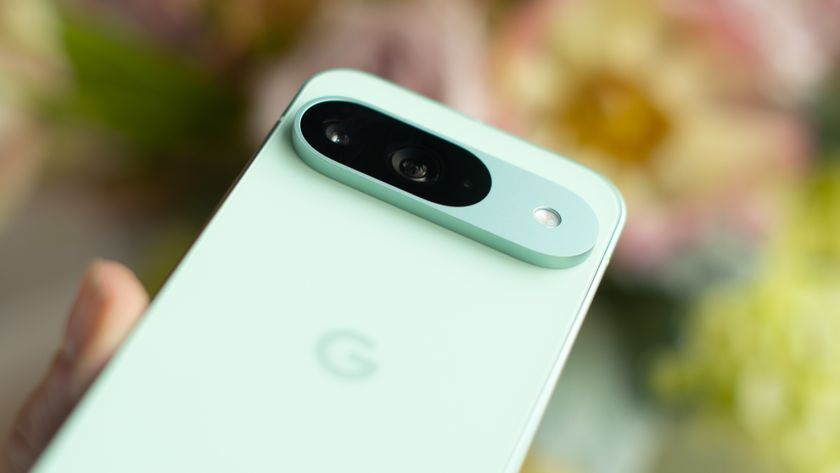10 tips for shooting better video on your smartphone
Pocket Spielberg
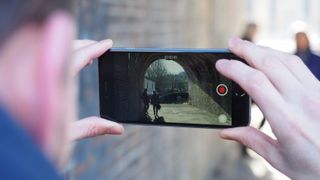
Shooting better videos
Shooting video on your phone is easy; you just swipe to video mode and hit record, right? Your smartphone might even shoot video in 4K, so what is stopping you from heading out and shooting lovely, high quality video?
As someone who shoots video for a living, I've found that it's what you think about before you hit record that more often than not determines how the video turns out. So, here are 10 things that you can do right now to help you shoot better video on your smartphone.
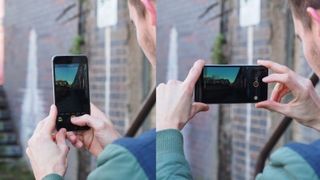
1. Shoot horizontal, not upright
If you want people to be able to watch your video at full size on a monitor or TV screen, keep your smartphone horizontal when you are recording. Shooting a video clip with your phone upright doesn't seem like an issue at the time because you're watching it on a device with a vertical screen, but as soon as you want to play the video anywhere else, your clip will be fighting for space with two black bars on either side of the screen.
So in the quest to shoot better video on your phone, start by keeping with standard video practise and shoot horizontally.

2. Keep it smooth and steady
Your smartphone is small and light, but it can be held surprisingly steady. The key thing is to use both hands, and lock your elbows into your body for extra stability. Try it yourself, and you'll see that although this won't eliminate the small involuntary movements (or shaky hands!), at least these won't put the viewer off like the sudden jolts you sometimes get from holding your phone one-handed.
But what if you want to introduce some controlled movement into a shot? With your elbows locked into your body, use your feet as a solid base and move the whole of your upper body not just the camera. This will result in a smoother motion every time.
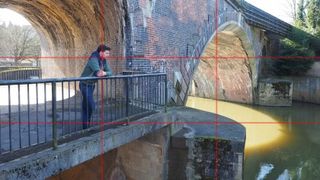
3. Use classic compositions
You know when a clip from a video really stands out? Well it's not only the professional cinematographers who can get shots like that, you can too! Shots that we find striking or leave a lasting impression often make use of composition rules that are designed to draw the viewer's eye to a particular part of the scene.
A good one to start with is the rule of thirds. Some phones allows you to activate a grid on the camera app. Now this doesn't always work in video mode, but you can flick to 'photo' while you get your shot set up. Where the lines cross in the frame are all good places to put something of interest, or if you're recording a person, position their head over one of these points.

4. Make the light work for you
Light is a wonderful thing, but it can be a friend or foe when shooting video. If you want to shoot better video, you need to know how to work with the available light and use it to your advantage. When outdoors, try and find a position where the sun is evenly lighting the scene you want to record.
If some parts of the shot are looking too bright or too dark, get into the habit of changing your position and finding another angle which allows you to still achieve the shot you wanted, but you've got the light working for you not against you.

5. Mix it up
Although a video made up of a single clip might show what you intended, a video made up of many shorter clips often makes a more interesting watch, and you can pick out some smaller details, not just the overall scene.
Whatever your subject, think about what other shots you can get to complement your master shot, and add to the story. It can be as simple as shooting your subject both from close up and further away, or getting someone to repeat a performance (like a cartwheel) a few times so you can capture it from a variety of angles. You'll end up with better video as you'll find better angles to shoot from.
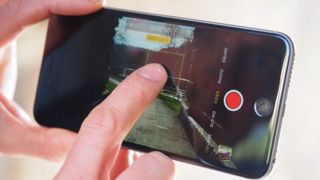
6. Manually set exposure and focus
Not all smartphone apps do this, but try pressing and holding on an area of the screen to activate the AE/AF Lock function. With a smartphone, the most important is the AE (Auto Exposure) Lock because you don't want the smartphone to keep changing the exposure while you're filming.
This will often happen if you're panning across an indoor scene (especially if there are windows!), so try locking the exposure on an area that gives you a good exposure for the whole scene. Manually setting the focus is great when you want to get close to an object, and you need to tell the camera to focus on a particular area.

7. Record good audio, or remove it later
Bad audio can ruin a great piece of video, and just because your smartphone can record a decent voiceover in a quiet controlled environment, it doesn't mean you can 100% rely on it when you're out and about.
If it's a perfectly still day, go for it, and if you want to video someone talking, get as close to them as you can to make sure they are heard above any noise in the environment. No doubt you've heard the horrible sound wind noise makes on video clips, so locate the builtin microphone and try to shield it from the wind, but be prepared to remove the audio later it it's noisy and unusable.

8. Go further with smart accessories
Everything so far can be achieved with just you and your smartphone, but there are some fantastic accessories out there that can turn your phone into a video making machine. We all need a good reason to part with any cash, of course, so be clear about what you want to achieve.
If getting static shots is your thing, a smartphone tripod or stabiliser is a good option, or if you find that the audio is keeping the quality of your videos down, something like the Rode SmartLav microphone might be the way to go.

9. Know what's possible (and what's not)
You want to shoot better video on your smartphone, so before you start shooting, it's good to know what the limitations are. Check the amount of available memory and battery life, as you can't just slot a couple of spare batteries into your smartphone, and you don't want to waste valuable shooting time scrolling through photos and videos deciding what to delete to free up space!
Smartphones don't have zoom lenses, and any digital zoom features will reduce the quality of the image, so aim to find a position where you are close enough for your subject to fill the frame.

10. Edit and share your videos
It sounds obvious, but if no one can watch and comment or give feedback on your videos, it's hard to assess whether you're shooting better video. It doesn't require hours of work, as the edit can be as simple as trimming the beginning or end off a few clips and arranging them in a logical order.
Some of this can be done on your phone itself, but making use of free video editing software opens up more possibilities to enhance your videos. Most importantly, keep making videos, and get them out there for people to watch.
Most Popular



